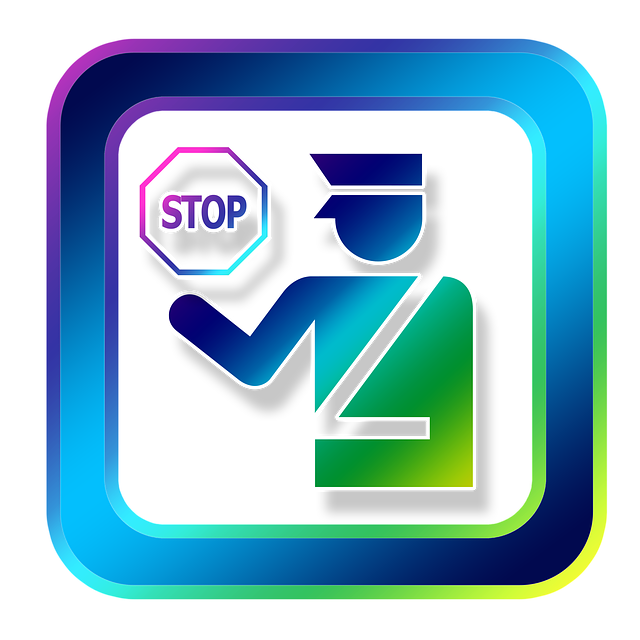TL;DR:
Anger control therapy is a powerful approach for managing impulse control disorders like Intermittent Explosive Disorder (IED) and Obsessive-Compulsive Disorder (OCD), addressing the root causes of unmanaged anger. Through techniques including Cognitive Behavioral Therapy (CBT), Dialectical Behavior Therapy (DBT), mindfulness training, and relaxation exercises, individuals learn to recognize triggers, understand their emotions, and adopt healthier coping strategies. This not only improves personal and professional relationships but also enhances overall well-being. Medication can complement therapy for better mood stabilization and impulse control. Consistent practice of learned techniques through journaling, support groups, and ongoing therapy is key to long-term success in anger management.
Impulse control disorders can significantly impact daily life, with anger being one of the most common manifestations. If left unmanaged, it can lead to strained relationships, poor work performance, and even legal troubles. This article explores effective strategies for anger control therapy, delving into the root causes, various therapeutic approaches like Cognitive Behavioral Therapy (CBT), mindfulness techniques, medication, and building healthy coping mechanisms. Discover long-term management strategies that empower individuals to regain control over their lives.
Understanding Impulse Control Disorders

Impulse control disorders are a group of conditions characterized by difficulties in managing impulsive behaviors, often leading to significant problems in various aspects of life. These disorders can manifest in different forms, such as intermittent explosive disorder (IED) and obsessive-compulsive disorder (OCD), with each having unique challenges. At the heart of these disorders is an individual’s struggle to resist immediate urges, which can result in reckless decisions, violent outbursts, or repetitive behaviors that are hard to control.
Anger control therapy, for instance, is a specific type of treatment designed to help individuals manage and reduce impulsive anger. It involves learning techniques to recognize triggers, understand underlying emotions, and develop healthier coping strategies. Through various therapeutic approaches, such as cognitive-behavioral therapy (CBT), mindfulness training, and relaxation techniques, individuals with impulse control disorders can gain better insight into their behaviors, learn self-regulation skills, and ultimately lead more fulfilling lives by making more thoughtful decisions.
The Impact of Unmanaged Anger on Daily Life

Unmanaged anger can significantly impact daily life, creating a ripple effect that disrupts personal and professional spheres. Individuals struggling with impulse control often find themselves reacting to situations impulsively, leading to verbal or physical outbursts. These behaviors can strain relationships, affect work performance, and even result in legal consequences. The consequences of unaddressed anger issues are far-reaching, causing individuals to feel isolated and unable to function effectively in their daily routines.
Anger control therapy plays a pivotal role in helping individuals manage these intense emotions constructively. Through various therapeutic techniques, clients learn to recognize triggers, understand the underlying causes of their anger, and develop healthy coping mechanisms. By gaining better impulse control, they can foster more positive relationships, improve decision-making abilities, and enhance overall well-being.
Exploring the Roots: Causes and Triggers

Exploring the roots of impulse control issues is a crucial step in effective therapy, particularly for anger control. Understanding what triggers impulsive behavior allows individuals to develop strategies to manage and regulate their emotions. Many factors can contribute to these challenges, such as underlying mental health conditions like bipolar disorder or post-traumatic stress disorder (PTSD). Environmental influences, including stressful life events or challenging relationships, may also play a significant role.
In anger control therapy, professionals help individuals identify specific triggers by exploring their personal histories and current circumstances. This process involves discussing past traumatic experiences, unresolved conflicts, and any patterns of behavior that have contributed to impulsive actions. By gaining this insight, individuals can begin to recognize early warning signs and develop healthy coping mechanisms to navigate emotional triggers more effectively.
Common Therapies for Anger Control

Many people struggling with impulsive anger find solace and improvement through various therapeutic approaches designed specifically for anger control. Cognitive Behavioral Therapy (CBT) is a commonly used method that focuses on identifying and changing negative thinking patterns and behaviors associated with anger. By learning to recognize triggers and managing emotional responses, individuals can develop healthier coping strategies. For instance, CBT teaches relaxation techniques, problem-solving skills, and effective communication methods, all of which help reduce angry outbursts.
Another popular approach is Dialectical Behavior Therapy (DBT), initially developed for borderline personality disorder but also proven effective for anger control issues. DBT combines CBT with mindfulness practices and acceptance strategies to help individuals regulate their emotions. This therapy encourages individuals to understand and accept their feelings, set healthy boundaries, and improve interpersonal relationships, thereby reducing the intensity and frequency of angry episodes.
Cognitive Behavioral Therapy (CBT): A Step-by-Step Approach

Cognitive Behavioral Therapy (CBT) is a widely recognized and effective approach for managing impulse control issues, including anger control therapy. This step-by-step process begins with identifying unhelpful thought patterns and behaviors related to impulses. Therapists work collaboratively with clients to challenge and replace negative or distorted thoughts with more realistic and positive ones. This cognitive restructuring involves learning to recognize triggers and developing strategies to manage intense emotions before they lead to impulsive actions.
As the therapy progresses, CBT focuses on behavior activation, encouraging individuals to engage in activities that promote well-being and distract from impulses. Clients are taught relaxation techniques, problem-solving skills, and effective communication methods to better regulate their emotions. Through structured sessions, they learn to monitor their thoughts, emotions, and behaviors, fostering a deeper understanding of their impulse control issues and empowering them to make positive changes in their lives.
Mindfulness Techniques for Impulsive Behaviors

Mindfulness techniques have emerged as powerful tools within anger control therapy, offering individuals a way to navigate and manage impulsive behaviors effectively. By fostering awareness of present-moment experiences, mindfulness helps individuals recognize and understand their triggers for impulse control issues. Through focused breathing exercises, meditation, and body scans, clients can develop a deeper understanding of their emotions and physical sensations, enabling them to respond rather than react impulsively.
These practices encourage non-judgmental acceptance of thoughts and feelings, allowing individuals to detach from automatic impulsive responses. Over time, mindfulness training enhances self-regulation skills, empowering people to choose more constructive behaviors when confronted with challenging situations. This approach not only complements anger control therapy but also contributes to overall emotional well-being and improved quality of life.
Medication as a Supportive Tool

Medication can play a crucial role in supporting individuals undergoing anger control therapy. Often, prescriptions are given to help manage and reduce impulsive behaviors driven by intense emotions, offering a valuable tool alongside therapeutic practices. These medications aim to stabilize mood, improve impulse control, and enhance overall emotional regulation.
For instance, certain antidepressants and anti-anxiety drugs can be prescribed to alleviate symptoms of anger management disorders. The goal is not to replace therapy but rather to provide an additional layer of support, making it easier for individuals to engage in and benefit from anger control strategies during their therapeutic journey.
Building Healthy Coping Mechanisms

Impulse control issues can often lead to challenging behaviors and emotions that may be difficult to manage. Anger control therapy is a highly effective approach to addressing these problems, focusing on teaching individuals healthier coping mechanisms. Through this therapy, patients learn to recognize and understand their triggers, enabling them to respond thoughtfully instead of reacting impulsively.
By employing various evidence-based techniques, such as cognitive behavioral therapy (CBT) and mindfulness practices, anger control therapy equips individuals with skills to navigate stressful situations calmly. These coping mechanisms include deep breathing exercises, progressive muscle relaxation, and positive self-talk, which help to de-escalate intense emotions. Over time, these strategies empower individuals to make better choices, improve relationships, and lead more fulfilling lives.
Long-term Management and Maintenance Strategies

Effective long-term management and maintenance strategies are crucial for individuals undergoing anger control therapy. Following regular sessions, consistent practice of learned coping mechanisms becomes essential to prevent relapse. This includes daily self-monitoring techniques, such as journaling, to track triggers and emotions, enabling individuals to identify patterns and implement timely interventions.
Support groups or ongoing therapy play a vital role in maintenance. Regular interactions with peers facing similar challenges foster a sense of community and accountability. Moreover, continuing education on anger management strategies through workshops or online resources ensures individuals stay committed to their progress, enhancing their ability to navigate challenging situations effectively.
